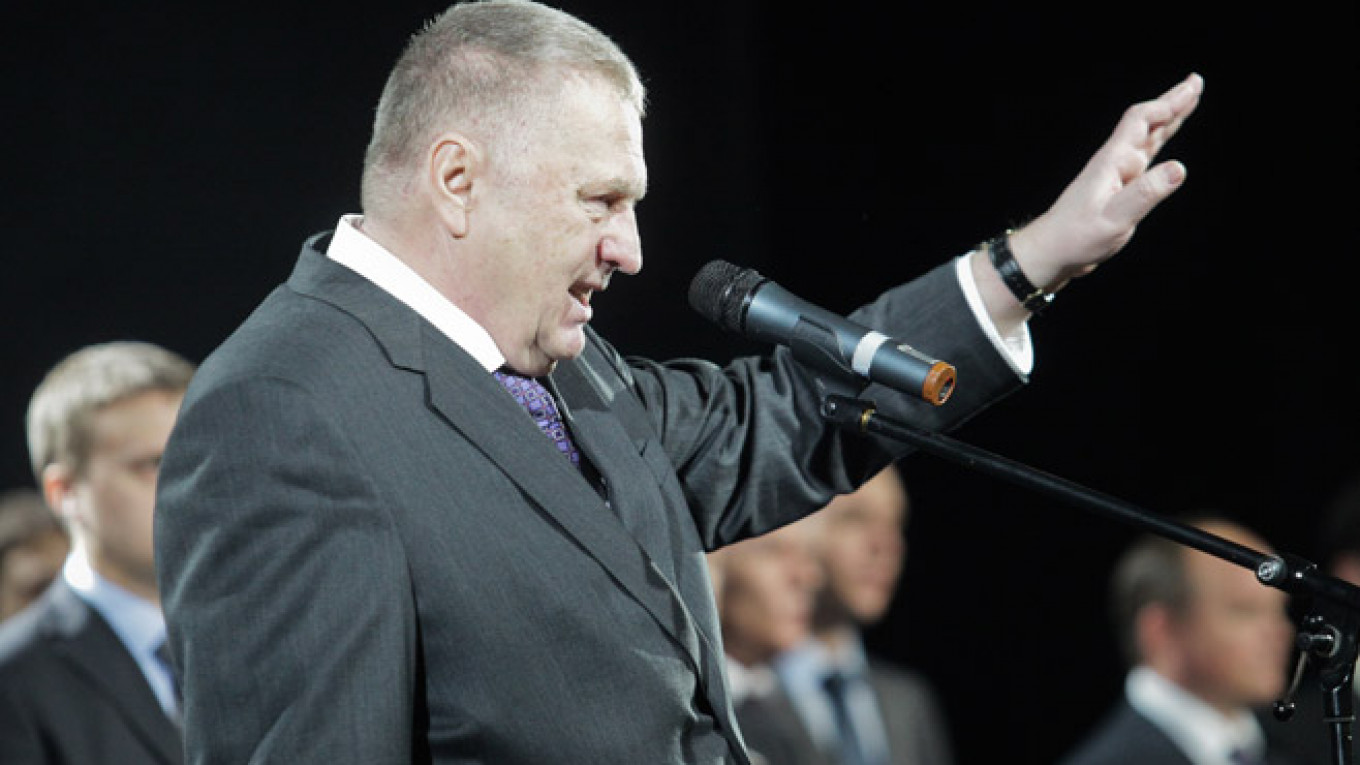Vladimir Zhirinovsky often speaks truth to power. His recent initiative to dispense with direct presidential elections and anoint Vladimir Putin the country's supreme leader for life is not without merits. It could be an improvement over what we have today.
President Vladimir Putin's power has never seemed more secure. His job approval is at a stratospheric high of 84 percent, while 57 percent would re-elect him to another presidential term today, up from 29 percent in January.
Yet, policies betray a sense of insecurity. A year ago, the strategy was to introduce a degree of genuine competition into Russian politics to boost the system's legitimacy. Competitive mayoral races in Moscow, Yekaterinburg and Petrozavodsk provided voters with a real choice.
In this year's elections all serious alternative candidates, particularly in St.Petersburg gubernatorial and Moscow City Duma elections, were blocked from running. Mayoral elections rules were doctored to prevent the emergence of independent leaders in major metropolitan areas. Gubernatorial races were largely imitations to endorse the Kremlin favored incumbents. Genuine opposition parties were not registered. Billionaire Mikhail Prokhorov left politics.
Instead of devolving authority to multiply stakeholders in the regime, the strategy is to maximize Putin's personal power. Without Putin, the Russian state is now dysfunctional. "Sans moi — le deluge" is the operating principle. There is no contingency planning for what happens "apres moi."
Putin himself has warned about the dangers of the collapse of the Russian state when power changes hands. He wants his system to continue when he exits the scene. The current course, however, would make his departure from power extremely destabilizing.
That's why Zhirinovsky's plan for an Iran-style political transition is worth considering. In Iran, the supreme leader and the Guardians Council have the ultimate authority, but do not run the country. They prescreen candidates in national elections, but allow for competing visions for the country's future. Unlike in Russia, parliamentary and presidential elections in Iran could lead to a change in policy.
A European way of doing this would be to introduce a constitutional monarchy, where Vladimir Putin would reign, but no longer rule. He would assume the role befitting his legacy — to become an anchoring institution for the Russian state, while giving the country space to develop.
Vladimir Frolov is president of LEFF Group, a government relations and PR company.
A Message from The Moscow Times:
Dear readers,
We are facing unprecedented challenges. Russia's Prosecutor General's Office has designated The Moscow Times as an "undesirable" organization, criminalizing our work and putting our staff at risk of prosecution. This follows our earlier unjust labeling as a "foreign agent."
These actions are direct attempts to silence independent journalism in Russia. The authorities claim our work "discredits the decisions of the Russian leadership." We see things differently: we strive to provide accurate, unbiased reporting on Russia.
We, the journalists of The Moscow Times, refuse to be silenced. But to continue our work, we need your help.
Your support, no matter how small, makes a world of difference. If you can, please support us monthly starting from just $2. It's quick to set up, and every contribution makes a significant impact.
By supporting The Moscow Times, you're defending open, independent journalism in the face of repression. Thank you for standing with us.
Remind me later.








